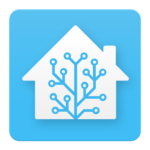Introduction
A smart home ecosystem is a network of smart devices, sensors, and appliances that work together to make life easier. With so many options on the market, it can be challenging to choose the best smart home ecosystem for your home.
In this article, we’ll compare four of the most popular smart home ecosystems: Home Assistant, Google Home, Apple HomeKit, and Amazon Alexa.
What is a Smart Home Ecosystem?
A smart home ecosystem is a network of devices, appliances, and sensors that are connected to the internet and designed to work together to provide automation, convenience, and control in your home. The core idea behind a smart home ecosystem is to create a seamless integration of different devices and services, allowing you to control your home environment from a central hub.
Smart home devices can include everything from lighting systems, thermostats, security cameras, door locks, and even kitchen appliances such as coffee makers or refrigerators. These devices are often controlled through a mobile app or a voice assistant such as Google Assistant, Siri, or Amazon Alexa.
In addition to controlling individual devices, a smart home ecosystem can also allow for automation and customization. For example, you can set up routines or schedules that turn off lights, adjust the temperature, or lock doors automatically. You can also use sensors or triggers to activate different devices, such as turning on lights when you enter a room or adjusting the temperature when the sun goes down.
A smart home ecosystem can provide many benefits, such as increased convenience, energy efficiency, and security. With the right setup, you can control every aspect of your home environment, from anywhere in the world, using just your voice or a smartphone app. Whether you’re looking to save money on energy bills, simplify your daily routine, or enhance your home’s security, a smart home ecosystem is a great investment.
Home Assistant
Home Assistant is an open-source platform that enables users to create a customizable smart home ecosystem. It is compatible with over 1,400 devices and supports a range of protocols, including Wi-Fi, Zigbee, Z-Wave, and Bluetooth. Home Assistant offers a range of features, including voice control, automation, and remote access.
Pros of Home Assistant
- Open-source platform
- Customizable
- Compatible with a wide range of devices and protocols
- Supports voice control, automation, and remote access
Cons of Home Assistant
- Steep learning curve
- Requires technical knowledge to set up and configure
- Limited integrations with third-party services
Google Home
Google Home is a smart speaker powered by Google Assistant. It is designed to work seamlessly with Google’s range of smart home devices, including the Nest thermostat and Chromecast. Google Home offers voice control, music streaming, and access to a range of services, including Google Maps and Google Calendar.
Pros of Google Home
- Easy to set up and use
- Wide range of compatible devices
- Access to Google’s range of services
- Voice control
Cons of Google Home
- Limited integration with third-party services
- Limited customization options
- Privacy concerns
Apple HomeKit
Apple HomeKit is a smart home ecosystem designed specifically for Apple devices. It offers a range of features, including voice control, automation, and remote access. HomeKit is compatible with a range of smart devices, including lighting systems, security cameras, and thermostats.
Pros of Apple HomeKit
- Easy to set up and use
- Integration with Siri
- Compatible with a wide range of smart devices
- Secure and private
Cons of Apple HomeKit
- Limited compatibility with non-Apple devices
- Limited customization options
- Expensive compared to other smart home ecosystems
Amazon Alexa
Amazon Alexa is a voice-controlled virtual assistant that can be integrated with a wide range of smart home devices. Alexa offers voice control, automation, and access to a range of services, including Amazon Prime and Audible. Amazon Alexa is compatible with a range of smart devices, including lighting systems, security cameras, and thermostats.
Pros of Amazon Alexa
- Wide range of compatible devices
- Voice control
- Access to a range of services
- Easy to set up and
Cons of Amazon Alexa
- Privacy concerns
- Limited customization options
- Limited integration with third-party services
Comparison of Features
To help you make an informed decision, let’s compare the key features of each smart home ecosystem:
Home Assistant:
- Open-source platform
- Customizable
- Compatible with a wide range of devices and protocols
- Supports voice control, automation, and remote access
Google Home:
- Easy to set up and use
- Wide range of compatible devices
- Access to Google’s range of services
- Voice control
Apple HomeKit:
- Easy to set up and use
- Integration with Siri
- Compatible with a wide range of smart devices
- Secure and private
Amazon Alexa:
- Wide range of compatible devices
- Voice control
- Access to a range of services
- Easy to set up and use
FAQs
Yes, you can use multiple smart home ecosystems in your home, but it can lead to compatibility issues and require more technical knowledge to set up.
Apple HomeKit is considered the most secure smart home ecosystem due to its encryption and authentication standards.
Google Home and Amazon Alexa are generally considered more affordable than Home Assistant and Apple HomeKit.
No, you can control smart home devices through a mobile app or a voice assistant on a smartphone or tablet.
Conclusion
Choosing the best smart home ecosystem ultimately depends on your individual needs and preferences.
Home Assistant offers a high level of customization and compatibility but requires technical knowledge to set up.
Google Home and Amazon Alexa are easy to use and offer a wide range of compatible devices and services but have limited customization options.
Apple HomeKit is secure and easy to use but limited in terms of compatibility with non-Apple devices.
Consider your priorities in terms of features, compatibility, privacy, and security when choosing the best smart home ecosystem for your home.
Indholdsfortegnelse





